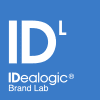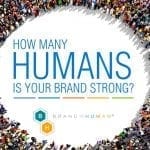Brand Response to Disasters
Companies Help Victims of Hurricane Harvey
Hurricane Harvey hit Houston on August 25, killing 77 people, causing nearly $180B in damage, and trying its hardest to depress Houstonian morale. The disaster could easily have forced residents to abandon their homes in the city and relocate to areas less prone to such destructive weather events; but from what I’ve learned of Houston in the eight months since I made it my home, Houstonians aren’t the type of people to give up on their hometown. They’re strong willed, resilient, proud citizens who defend their city against all odds, even against unavoidable natural disasters. And in the aftermath, they proved themselves to be more than just residents. Houstonians came together to help one another. Neighbors, coworkers, even complete strangers volunteered their time and money to help those people and areas hit the hardest. For me, a newcomer, it was an enlightening time that convinced me beyond a doubt that I had made the right choice in moving here. Houston has my back.
It’s not only the residents who have each other’s backs in times of crisis, but the businesses, too. By now, pretty much everyone has heard how Jim McIngvale, better known as Mattress Mack, opened two of his furniture showrooms to shelter some of the thousands of people displaced by the storm. He offered food, water, even the furniture and beds in his inventory, out of the kindness of his heart. He even gave out his personal cell phone number and encouraged people to call him for help. Mattress Mack is a man of means, and he chose to use those means for good—to help his community. As a result, Mattress Mack and Gallery Furniture will be at the top of any Houstonian’s shopping list for a long while.
Deborah Budd recently wrote a piece for Second Wind discussing the ways in which brands respond to disasters. She mentions Mattress Mack, and goes on to examine the responses from brands like Tide, McDonalds, The Home Depot, Pepsi and Anheuser-Busch, all of whom readjusted their mindsets from marketing to helping those in need. “Some brands,” Budd writes, “understand how to best intervene with aid and needed products in emergencies.” The best response a brand could make, she argues, should be to act as anything but a brand during an emergency. Brands should reach out to help communities in need and should do so selflessly, from the heart.
“[B]rands have no role as brands during disasters,” says Budd. She’s absolutely right. The heart of branding, of what we do here at IDealogic®, is humanizing businesses. Part of that humanity, part of being a valuable member of society, is empathy. Empathy—the ability to share and understand the feelings and needs of others—is what is needed during emergencies. Companies must be able to rethink and reprioritize their profit and marketing mindsets in order to deliver the assistance their considerable means empower them to provide. It can be difficult, of course, to see an opportunity to advertise and market your business and not take it. But when emotions are high, taking advantage of fear and anxiety will have the opposite of the intended effect: it will dissuade consumers from supporting a brand. Worse, it could create a reaction so negative that affected consumers, once they’ve recovered, could actively boycott a brand and encourage their friends, family, and colleagues to do the same.
So how should a brand respond in an emergency situation? Look at Tide, the leading liquid laundry detergent brand in the U.S. P&G’s Tide Loads of Hope took their mobile laundry centers to the heart of the disaster area, set up in parking lots and city streets, and washed upwards of a hundred loads of laundry per day per truck. Thousands of people whose clothes, luggage, and shoes would’ve been soaked with rain and contaminated floodwater were suddenly given a blessing from a well-known company. Tide rolled into town and comforted affected citizens, saying, “we know you’ve got a lot to worry about, don’t let laundry be one of them.” It wasn’t an advertisement or a marketing campaign, nor was it a ploy to increase sales or visibility. It was a campaign to help. Tide saw a way to help, and took action. They were selfless. They were gentle. They were loving.
Several local McDonalds franchises opened their doors, like Mattress Mack, to displaced residents, offering shelter, food, and water at no charge. Pepsi and Anheuser-Busch partnered with the American Red Cross to provide clean drinking water. J.J. Watt, the powerhouse defensive end for the Houston Texans, raised over $37M for the Houston Flood Relief Fund. Amazon, Whole Foods, Allstate, and many other businesses came together to donate over $157M to help Houston recover.
All of these brands proved that they cared about people beyond their capital value. As a result, the brands’ perceived value skyrocketed. They acted, as Budd wrote, as anything but brands. They acted like people, showed empathy, and offered assistance simply because they were able to do so. That is exactly how a brand should respond to emergencies.
We at IDealogic® look to companies like these as examples of the relationships brands should have to consumers. They set aside their personal needs in order to help their fellow humans and to better society as a whole wherever possible. We believe that every company, in every industry, should engineer its brand around the people who matter, and we’re proud to see brands who live this philosophy as well.
As for me, I’m grateful to have lived through Harvey. Aside from a little flooding in my car (which inflicted a less than stellar moldy stench for a few weeks), I was unaffected. But I gained a lot of pride for my adopted city and the strength and resilience of my neighbors. And I can tell you one thing: when I need a new mattress, Mack will be my first and only stop.



